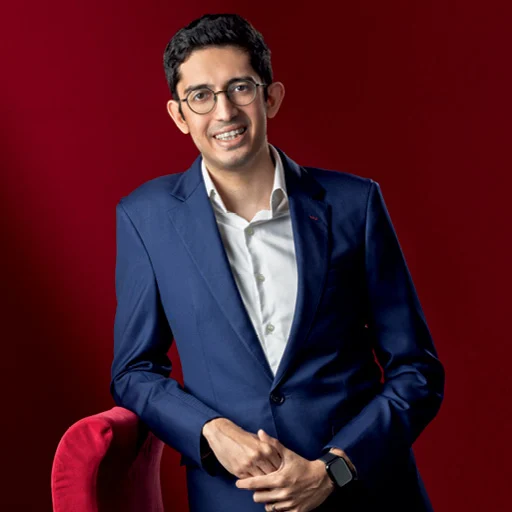Jay Kotak endorses dad’s next-gen opinion—but with a caveat
By working closely with India’s next-gen scions, Uday Kotak’s eldest son sees generational handovers as complex and personal.

Build. Operate. Transfer. A term that’s long defined how India constructs highways and ports is now being co-opted by Uday Kotak to describe a growing trend in family-run businesses—where the next generation, instead of rolling up their sleeves, is increasingly content to hand over the family jewels and take the investor route.
"If someone has sold a business, they should be thinking about starting, buying, or building another one. Instead, I see many young people saying, 'I’m running my family office.' They should be creating real-world businesses. Why not start from scratch?" Kotak said bluntly at the group’s Chasing Growth investor summit earlier this year.
Now, his son Jay Kotak—a senior executive at Kotak Mahindra Bank—openly endorses that view but with a caveat.
“I don’t see myself so much as a next-gen,” he says in an exclusive interaction with Fortune India. “I am a professional in a regulated business. That’s who I am.” His role, as co-head of Kotak 811 (the bank’s digital banking platform) and Senior Vice President for conglomerate relationships, straddles the two worlds that define modern Indian business: the ambition of the first-generation founders and the inheritance of their successors.
In his own way, Jay has made a study of those successors. As part of his role in the wholesale bank, he works closely with many next-gen leaders in India’s largest conglomerates. “On the margin, it’s better for next-gen leaders to be involved in operating businesses. But to each his own,” tells Kotak.
But he is not being judgmental. “Every next-gen has a unique set of challenges and nuances in their business. And of course, how that handholding happens between one generation to another is very interesting, because often the first-gen has their own confidence and leadership in place, and the next gen has sometimes common, sometimes differing views. So, navigating that is important. I would just say it’s fun,” explains Kotak.
While Jay is clear that he sees “a high level of commitment” among the larger next-gen business leaders he interacts with, he also offers a word of advice: “If you have that choice, be an operator, not just an investor.”
Recommended Stories
Uday Kotak believes something is lost when operating experience is swapped too soon for financial engineering. Uday had asked in his address. "I would love to see this generation be hungry for success and build operational businesses. Even today, I firmly believe that the next generation must work hard and create businesses rather than becoming financial investors too early in life."
While there are nuances in every case, Jay says that most of the next-generation leaders he interacts with—especially in large business families—remain deeply involved in operations. Whether it’s launching a new division, expanding an existing business, or taking the reins from the previous generation, the focus is still on building and scaling. He sees no broad trend of next-gen members moving away from business operations. If anything, the entrepreneurial instinct remains strong—particularly in family-owned enterprises. “In general, in the largest businesses, there’s a healthy operator mindset. It’s in our Indian blood—at least in business families—to do business. I’d say it plays out differently in regulated sectors,” feels Kotak.
In some ways, Jay is trying to rewrite the narrative around legacy. He’s neither disowning his inheritance nor leaning on it. Calling himself a professional isn’t just modesty—it’s Jay’s way of defining his place within the organisation. “Any dedicated professional who enjoys what they do doesn’t think about doing something different,” he says, when asked whether he plans to stay on at Kotak for the long haul. “I really enjoy what I do. The company I’m at, the sector I’m in, and the country that both are in—they’re all very well poised.”
Though he’s not making any long-term promises, Jay Kotak is clear-eyed about commitment—and the conditions that sustain it. “I would hope to be around for a long time, but it depends on my own performance, the performance of my business, and a variety of other factors,” he says.
(INR CR)
If there’s one lesson the job has taught him, it’s the virtue of staying the course. “Good, solid businesses take time and effort to get right—and to scale,” he says. “There’s no magic bullet. Whether in AI or anywhere else, valuations can run ahead of reality. But building a profitable franchise that delights customers and maintains financial health takes time, effort, and plenty of ups and downs.”
So yes, perhaps, not every inheritor is lazy. It’s just that many may simply not have been challenged enough to keep the family jewels shining.

